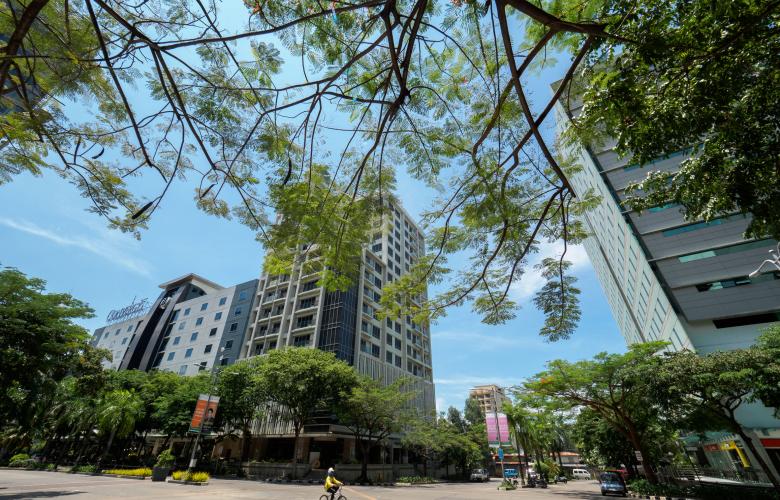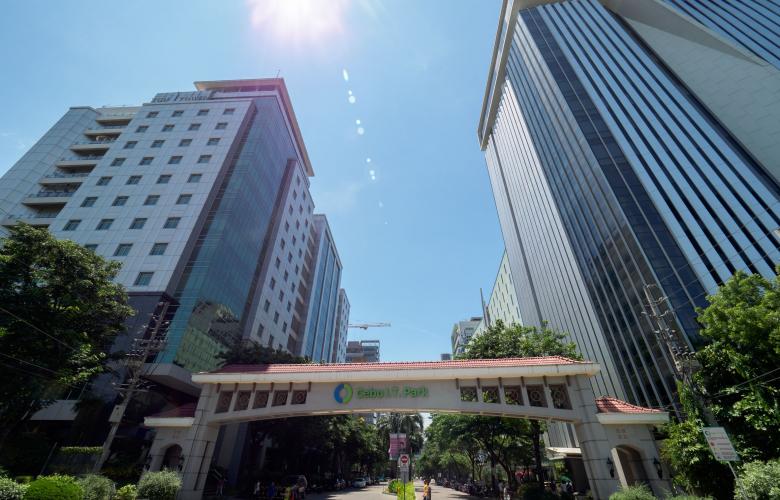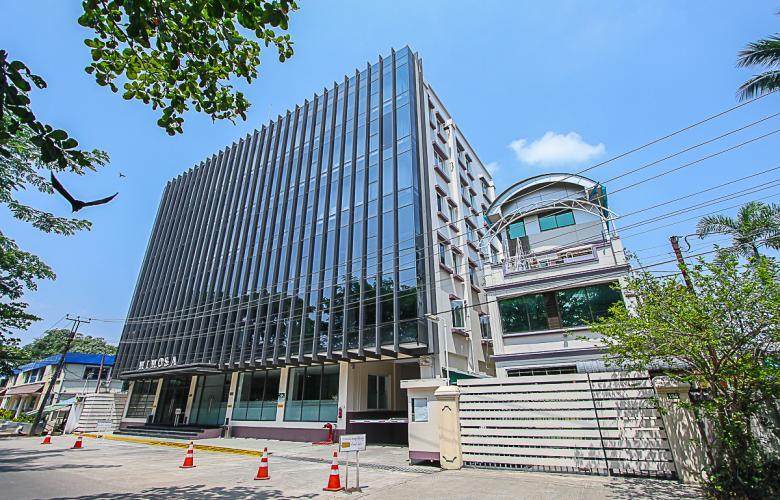The Philippine economy grew by 6% in Q2 2018, slower than the 6.6% recorded in the same period last year and below the 7% to 8% initially projected by the government; making the Philippines the third fastest growing economy in the region, behind Vietnam at 6.8% and China at 6.7%.
In the next three to six years, the Philippine government intends to post faster economic growth by enticing more investments through relaxation of foreign ownership restrictions in key economic sectors such as construction and ramping up the implementation of vital infrastructure projects.
Amid the slower growth, the property sector remains resilient with major segments such as office and residential poised for record-high demand and supply in 2018.
However, Colliers International Philippines see challenges ahead, primary of which are:
- Rising interest rates which could dampen low to mid-income residential demand over the next 12 to 24 months. Aside from surging land values in major business districts, Colliers attributes the slowdown in condominium launches in H1 2018 to developers' concerns surrounding increasing interest rates. On 8 August, the central bank raised policy rates by 50 basis points, the most aggressive hike since the Global Financial Crisis in 2008. Colliers believe that a volatile interest rate environment should entice local developers to be more open to partnering with foreign firms to develop horizontal and vertical residential projects.
- Surging inflation rate that curtails consumer spending, which accounts for nearly 70% of the country's economy. Household spending grew by a slower 5.6% in Q2 2018 from 6% in Q2 2017 due to the rising cost of basic goods, with the inflation reaching five-year highs.
- Persisting private construction delays due to the acute shortage of skilled workers and ramped up implementation of public infrastructure projects, In H1 2018, public construction grew 22.1%, more than double the pace of 9.3% growth in H1 2017 as the government commits to 'Build, Build, Build' throughout the country. The resiliency of the construction sector is supported by the 17% growth in the purchases of construction equipment and machinery.
- Uncertainty surrounding the implementation of the second package of the Comprehensive Tax Reform Program. The measure proposes to reduce corporate income tax rates and rationalise tax and non-tax perks granted to foreign investors. This compelled a number of manufacturing investors to wait-and-see, resulting in a 38% drop in foreign investment pledges in Q2 2018.
- Right-of-Way (ROW) issues obstructing the construction of vital infrastructure projects across Metro Manila. These projects once completed should ease access to major business districts in Manila and play a major role in dictating developer strategies over the next three to six years.
Office: Traditional businesses sustain office demand
Research Manager for Colliers International Philippines, Joey Roi Bondoc told WILLIAMS MEDIA, "Overall we see BPO and KPO firms occupying additional space for the remainder of 2018. With sustained macroeconomic fundamentals, we see traditional or non-outsourcing companies expanding operations and this should compel them to lease out additional space.
"Offshore gaming firms will continue to thrive but the tight office vacancy in Metro Manila should encourage these companies to take up space in alternative sites such as Pampanga, Cebu, and Laguna. These office occupiers’ demand is contributing to a more dynamic office market and the gains are spilling over to other sectors such as residential, leisure, and retail.
"The multiplier effects have been visible, with second- and third-tier cities outside Manila also benefitting from a robust property sector," he said.
Residential: Chinese nationals sustaining occupancy
Bondoc explains to WILLIAMS MEDIA, "Over the past few months we have seen the launch of a number of residential projects in and outside of Metro Manila between foreign companies and Filipino firms. We see this trend being sustained as Colliers Philippines has been receiving queries from firms based in Japan, Hong Kong and Mainland China planning to tie up with local developers. Colliers believes that local and foreign companies mutually benefit from joint venture projects. While foreign firms are enticed by high yields derived from Philippine projects, local developers can improve their brand image by partnering with prominent foreign brands known for their precision and high architectural and engineering standards. Hence, Colliers recommends that developers be on the constant lookout for potential JV deals with foreign developers.
"Both national and local developers have also been active in addressing the rising demand for residential projects in major urban areas in Luzon (ex-Metro Manila), Visayas, and Mindanao. The improvement of road networks and expansion of airports should further unlock land values in these areas, making them more feasible for residential projects. The demand for residential units in these locations will continuously grow as we believe that a significant part of the remittances sent in by OFWs annually will be set aside for Filipinos’ housing requirements.
Bondoc adds, "Developers will continue to venture into residential projects in second-tier and third-tier cities all over the country, where demand comes from end-user buyers. The markets may be smaller compared to Manila but more stable in terms of end-user housing demand."
Philippine property sector moving forward
There are initial concerns about the country's property sector overheating. But the central bank has been implementing measures to temper inflation and quell overheating concerns. But for the economic growth to be more inclusive and supportive of a thriving property market, the government must guarantee that policy reforms are in place, and these include the continued granting of both tax and non-tax incentives to ensure that the Philippines retains its stature as an attractive destination for outsourcing and industrial locators; and relaxation of foreign ownership restriction in key sectors such as construction to address delays in the completion of projects.
Colliers believes that aside from a highly skilled labour pool, incentives granted to BPOs and industrial locators are among the Philippines' advantages over its regional peers. The government's push to build key infrastructure projects and promote other provinces as viable investment hubs should foster a more inclusive and sustainable economic growth over the next three to six years, and this should benefit the property segment.
For more information or to discuss the Philippines property sector results for Q2 2018, phone or email Joey Roi Bondoc, Research Manager for Colliers International Philippines via the contact details listed below.
Similar to this:
Philippines to reach 1 million sqm in Manila office take-up
Asian investment volumes hit record high
Strong economic growth leads to residential price increase in Hong Kong












